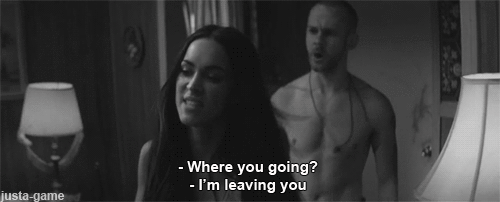Opinion | Psychology of Unhealthy Relationships
Why we stay in our relationships is a trick question. Some stay for love, some for the affection they get from their partner, some merely stay because they do not have anywhere else to go, and some stay for addiction.
Yes. One of the primary reasons most people stay in unhealthy relationships is because they are addicted to the presence of their partners. To understand the psychology of individuals who choose to stay in toxic relationships, knowingly or unknowingly, we must first divulge into what is an unhealthy relationship?
What are unhealthy relationships?
For a general definition, unhealthy relationships are the ones where we are not able to express our real selves to our partner. We tend to hide things, our personality, our needs, our vulnerabilities, and we totally become an entity that would be ‘liked’ by our partner; but most of the time, when we deviate from that happy picture we create for ourselves, all hell breaks loose.
Staying in an unhealthy relationship is never a choice. We often ignore the obvious signs of being in a toxic relationship, or we tend to normalize the situation we are in. We get so accustomed to our life we lead with our toxic partner, that sometimes, we miss the chaos.
Human psychology tends to latch itself to feelings or gestures, which make one feel protected. We make decisions in our lives based on the repercussions of our childhood memories. Rachel Pace, an expert on relationships, believes that our tendency to stay in unhealthy relationships is rooted in unresolved issues of the past.
Most of the unhealthy relationships are unbalanced in terms of love, devotion, and affection. It is because while a person is okay with not giving an adequate amount of time to his/her partner, another person ALWAYS tends to feel guilty because of their actions.
Inferiority complex, or a lack of confidence, whatever you call it, it latches into our personality and makes us feel invaluable in front of our partners. Over time, with the growth of resentment and a feeling of inequality, we tend to make our relationship more toxic, without even realizing that maybe the problem lies with us, or maybe we are equally responsible for our condition.
Our thoughts and impulsive emotions guide us through such troubled times, and we forget to judge what is right and what is wrong. We are easily guided by a feeling of guilt 24×7, and most of the time, our partner takes advantage of such a scenario.
Lack of confidence can play a major negative factor in all relationships. It makes us more dependent on our partners. We tend to look up to them for validation. Our priorities are clouded by their opinions. And that is why we get easily manipulated to choose options that go against our principles or ethics. And that pushes us into feeling more guilty. Do you see it? It is like a never-ending cycle.
The psychology behind choosing to stay in this continuous loop of hell is sometimes our lack of trust within ourselves. Modern relationships are so quick; we do not take the time to understand ourselves, before jumping onto the next relationships after a breakup. We try to look at ourselves from a stranger’s perspective and take it as the truth. We get so attached to a person for validation and support that we always feel that we must be with them to be deserving of life.
We forget that life is a much broader aspect and that romantic relationships only play a part in it. Our relationships do not define us, but how it shapes us, how we grow with our partner’s support, that is what helps us evolve into a better version of ourselves. Being stuck to the past or constantly trying to work on a jigsaw puzzle whose pieces were never meant to be together, is a waste of time. The sooner we understand this, the better.





Comments
Post a Comment